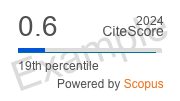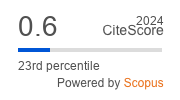Opioid receptor agonists to prevent heart reperfusion injury: analysis of experimental and clinical data
https://doi.org/10.29001/2073-8552-2015-30-2-36-39
Abstract
About the Authors
L. N. MaslovРоссия
S. Yu. Tsibulnikov
Россия
A. V. Mukhomedzyanov
Россия
References
1. Марков В.А., Рябов В.В., Максимов И.В. и др. Вчера, сегодня, завтра в диагностики и лечении острого инфаркта миокарда // Сибирский медицинский журнал (Томск). - 2011. -Т. 26, № 2, вып. 1. - С. 8-14.
2. Метелица В.И. Справочник по клинической фармакологии сердечно-сосудистых лекарственных средств. - М.: Бином, 2002. - 926 с.
3. Николаева Н.В., Федоров В.В., Привалова В.Ю. и др. Трудовой прогноз больных инфарктом миокарда // Кардиология. - 1997. - Т. 37, № 3. - С. 73.
4. Сыркин А.С. Инфаркт миокарда. - М.: Медицинское информационное агентство, 2003. - 466 с.
5. Bolli R., Triana J.F., Jeroudi M.O. Prolonged impairment of coronary vasodilation after reversible ischemia. Evidence for microvascular “stunning” // Circ. Res. - 1990. - Vol. 67, No. 2. - P. 332-343.
6. Chang W.L., Lee S.S., Su M.J. Attenuation of post-ischemia reperfusion injury by thaliporphine and morphine in rat hearts // J. Biomed. Sci. - 2005. - Vol. 12, No. 4. - P. 611-619.
7. Chen Z., Li T., Zhang B. Morphine postconditioning protects against reperfusion injury in the isolated rat hearts // J. Surg. Res. - 2008. - Vol. 145, No. 2. - P. 287-294.
8. Forster K., Kuno A., Solenkova N. et al. The S-opioid receptor agonist DADLE at reperfusion protects the heart through activation of pro-survival kinases via EGF receptor transactivation // Am. J. Physiol. Heart Circ. Physiol. - 2007. -Vol. 293, No. 3. - P. H1604-H1608.
9. Fuardo M., Lemoine S., Lo Coco C. et al. [D-Ala2,D-Leu5]-enkephalin (DADLE) and morphine-induced postconditioning by inhibition of mitochondrial permeability transition pore, in human myocardium // Exp. Biol. Med (Maywood). - 2013. -Vol. 238, No. 4. - P. 426-432.
10. Gong Z.X., Ran K., Chang Y.T. et al. Effect of morphine postconditioning on myocardial ischemia-reperfusion injury in rabbits // J. Zhejiang Univ. Med. Sci. - 2009. - Vol. 38, No. 5. -P. 521-524.
11. Gross E.R., Hsu A.K., Gross G.J. Opioid-induced cardioprotection occurs via glycogen synthase kinase beta inhibition during reperfusion in intact rat hearts // Circ. Res. - 2004. - Vol. 94, No. 7. - P. 960-966.
12. Gross E.R., Hsu A.K., Gross G.J. Diabetes abolishes morphine-induced cardioprotection via multiple pathways upstream of glycogen synthase kinase-3ß // Diabetes. - 2007. - Vol. 56, No. 1. - P. 127-136.
13. Gross E.R., Hsu A.K., Gross G.J. GSK3ß inhibition and KATP channel opening mediate acute opioid-induced cardioprotection at reperfusion // Basic Res. Cardiol. - 2007. -Vol. 102, No. 4. - P 341-349.
14. Huhn R., Heinen A., Weber N.C. et al. Ischaemic and morphine-induced post-conditioning: impact of mKCa channels // Br. J. Anaesth. - 2010. - Vol. 105, No. 5. - P. 589-595.
15. Jang Y., Xi J., Wang H. et al. Postconditioning prevents reperfusion injury by activating S-opioid receptors // Anesthesiology. - 2008. - Vol. 108, No. 2. - P. 243-250.
16. Kim J.H., Chun K.J., Park Y.H. et al. Morphine-induced postconditioning modulates mitochondrial permeability transition pore opening via delta-1 opioid receptors activation in isolated rat hearts // Korean J. Anesthesiol. - 2011. - Vol. 61, No. 1. - P. 69-74.
17. Mourouzis I., Saranteas T., Perimenis P. et al. Morphine administration at reperfusion fails to improve postischaemic cardiac function but limits myocardial injury probably via heat-shock protein 27 phosphorylation // Eur. J. Anaesthesiol. - 2009. - Vol. 26, No. 7. - P. 572-581.
18. Peart J.N., Gross E.R., Reichelt M.E. et al. Activation of kappaopioid receptors at reperfusion affords cardioprotection in both rat and mouse hearts // Basic Res. Cardiol. - 2008. - Vol. 103, No. 5. - P. 454-463.
19. Tsutsumi Y.M., Yokoyama T., Horikawa Y. et al. Reactive oxygen species trigger ischemic and pharmacological postconditioning: in vivo and in vitro characterization // Life Sci. - 2007. -Vol. 81, No. 15. - P. 1223-1227.
20. Zhang R., Shen L., Xie Y. et al. // J. Cardiothorac. Surg. - 2013. -Vol. 8. - P. 76.
21. Zhao Z.Q., Corvera J.S., Halkos M.E. et al. Inhibition of myocardial injury by ischemic postconditioning during reperfusion: comparison with ischemic preconditioning // Am. J. Physiol. Heart Circ. Physiol. - 2003. - Vol. 285, No. 2. - P. H579-H588.
Review
For citations:
Maslov L.N., Tsibulnikov S.Yu., Mukhomedzyanov A.V. Opioid receptor agonists to prevent heart reperfusion injury: analysis of experimental and clinical data. Siberian Journal of Clinical and Experimental Medicine. 2015;30(2):36-39. (In Russ.) https://doi.org/10.29001/2073-8552-2015-30-2-36-39
JATS XML




.png)





























